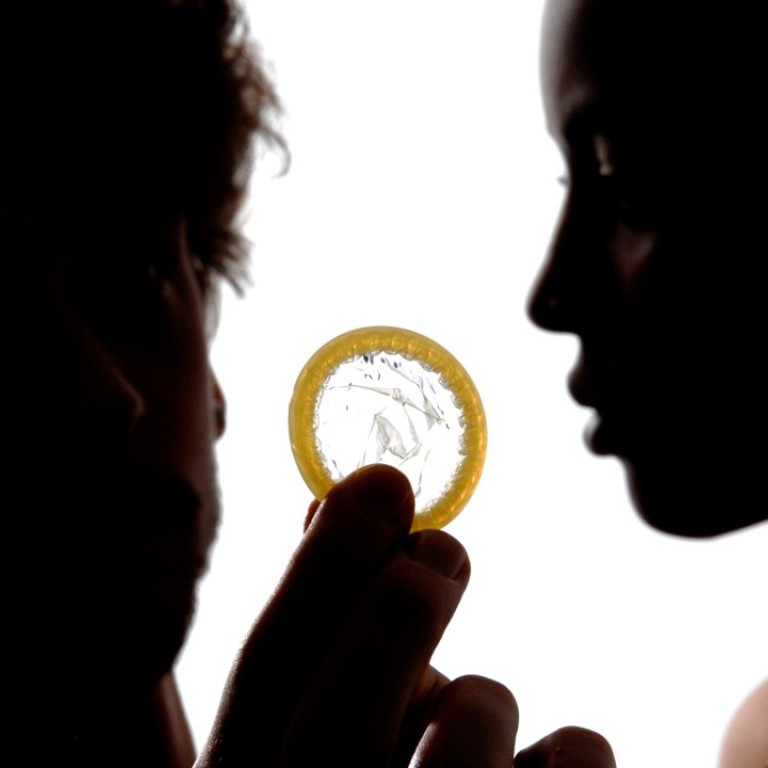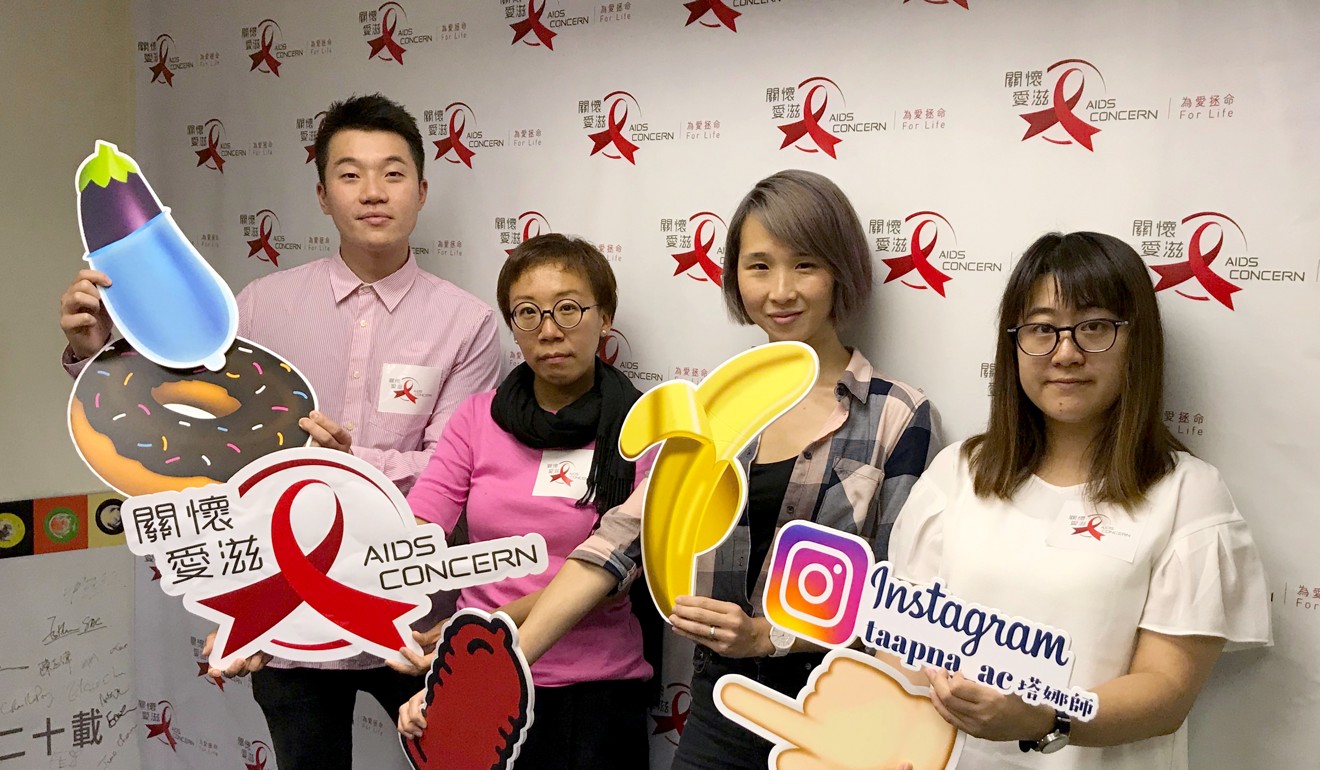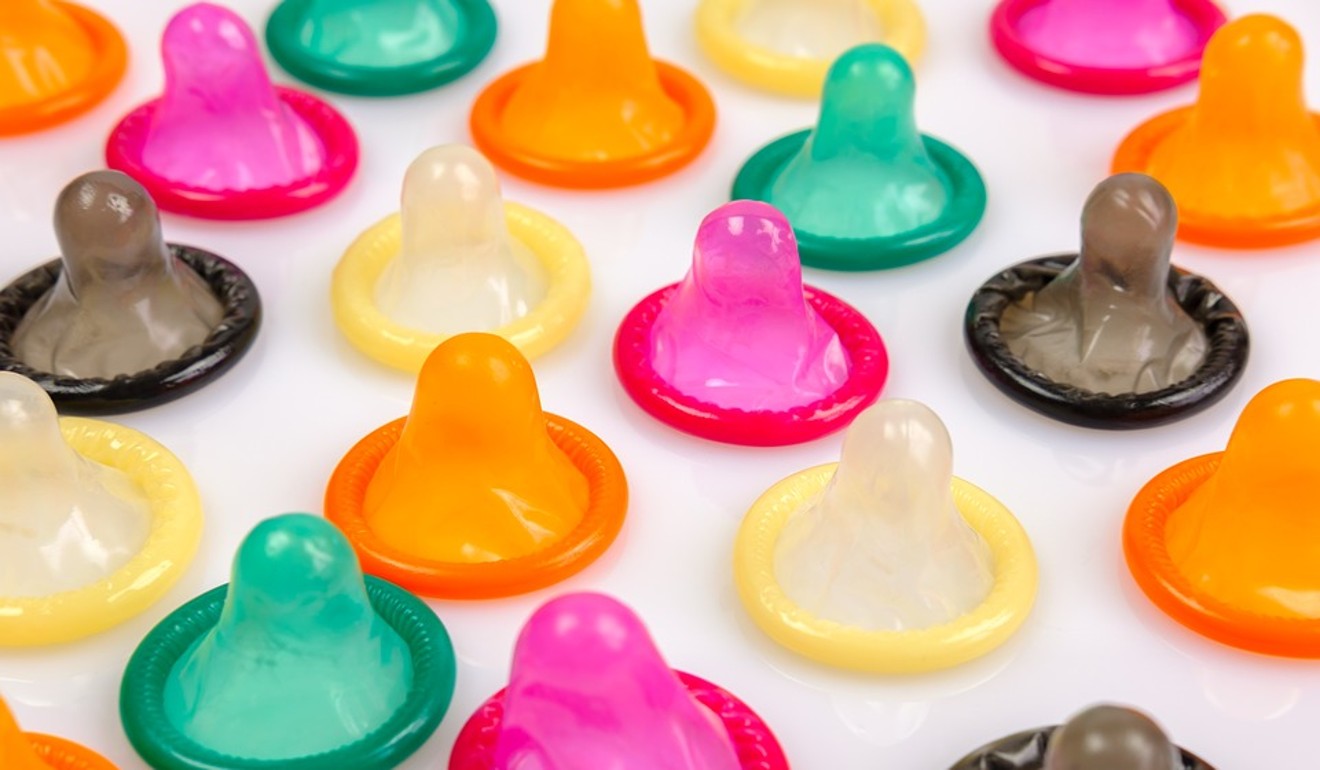
Rise in unprotected sex among young points to ‘lack’ of education in Hong Kong
Aids Concern finds a growing proportion of 14- to 25-year-olds getting tested for STDs and HIV are not using condoms, pointing to poor sex education in schools
A growing proportion of sexually active 14- to 25-year-olds in Hong Kong are choosing not to use protection during the act, reflecting a “serious lack” of proper education on the subject in school, an HIV prevention NGO said on Tuesday.
Aids Concern based its remarks on surveys done over five years with 3,013 young people, who had visited its centre in Jordan to get tested for HIV and other sexually transmitted diseases.
While it did not give a breakdown on the number surveyed each year, the results showed that since 2014-15, the percentage of condom use across four groups – those having sex while in a relationship, with regular partners, with casual partners and with prostitutes – had declined.

Individuals were asked whether they had used a condom each time they had sex in the past six months.
In 2017-18, 71 per cent of people who slept with prostitutes used a condom, compared with 84 per cent in 2014-15. In 2013-14, the figure was 58 per cent.
But for the other three groups, the figure dropped over the same period. It fell from 56 per cent to 36 per cent for those sleeping with casual partners, 45 per cent to 27 per cent for those in heterosexual relationships, and from 38 per cent to 28 per cent for those with regular partners.
The main reasons respondents – of whom almost 70 per cent were male – gave was that partners asked them not to use protection, they felt there was a low risk of getting an STD, and they did not want “to spoil the mood”.
Aids Concern added that less than half of those surveyed said they knew about contraceptive methods such as condoms or birth control pills.
Amsterdam’s red-light district without a condom? Not for a million, says Foxxy Angel
“This means the remaining 55 per cent believe in other methods that don’t have any scientific basis,” said Jim Hoe Kwun-hung, the NGO’s advocacy and community research manager.
“This shows that the respondents are seriously lacking in sexual education knowledge, which is quite worrying.”
Hoe was referring to comments respondents made, such as that they believed they would not get pregnant if their partner pulls out before he ejaculates, or having sex during a “safe period” by calculating days before their menstrual cycle.
The findings came as the government released its latest quarterly data on new HIV cases – with 154 people diagnosed in the second quarter of this year, bringing the total number for the year to 296, at least a quarter less than the same period last year.
Aids Concern programme director Mandy Cheung Hiu-wah said the bigger issue at hand was how to improve sex education.

“They always say let’s talk about sex when the children are older, but there are cases where university students don’t have access to proper knowledge,” Cheung said. “It shouldn’t be about avoidance, but about comprehensive sexual education, which includes issues like getting consent.”
Hong Kong schools are not required to teach sex education as an independent subject, unlike in Taiwan or Britain. This means there is no set syllabus, or minimum number of hours they must spend on the topic.
Hoe said it would be difficult to teach it in a systematic manner across all schools in the city, as certain topics, such as homosexuality and proper use of condoms, would be considered sensitive or controversial, especially for schools affiliated with religious institutions or backgrounds.
He urged the government to at least start a public consultation on how to improve sexual education for Hong Kong’s young people.
Scores of suspected sex workers arrested in same building where Hong Kong police rounded up almost 100 just months ago
A 22-year-old who had recently graduated from the University of Hong Kong said sex education in schools was not enough.
“I learned about sex once in high school, but nothing more than the different diseases associated with it,” said the man, who requested anonymity.
“Even teachers are not comfortable talking about sex. The general public, especially parents and teachers, think of premarital sex as something negative,” he said.
An Education Bureau spokesman said sex education had already been incorporated into different disciplines, and in moral and civic education in primary and secondary schools.
“Curriculum development is an ongoing and ever-developing task,” the spokesman said. “The Education Bureau will closely monitor the views of the community on the curriculum and make timely reviews and improvements.”


